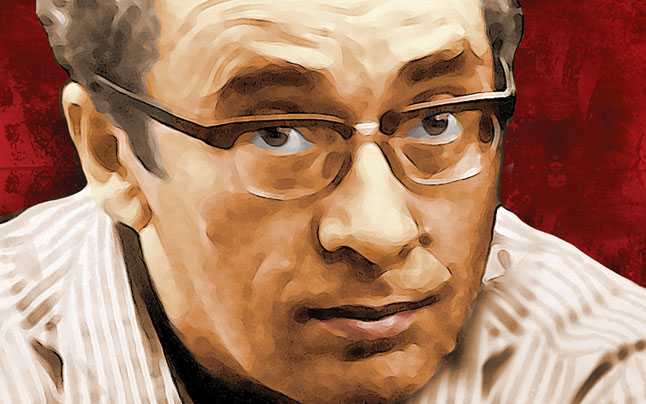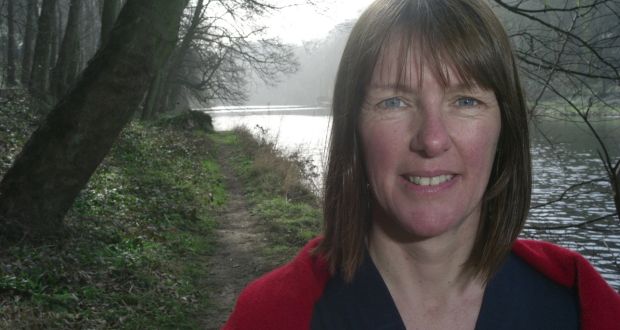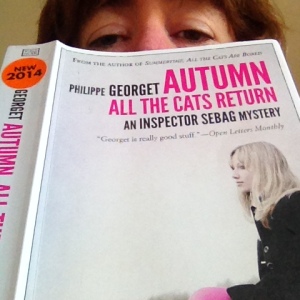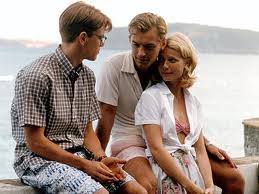Susana at A Bag Full of Stories always prods me to join some fun blog posts about my reading habits. When I read her Favourite Books by Most-Owned Authors blog post, I was inspired to examine my own bookshelves. Some of the results might surprise you, they certainly surprised me!
But first: what constitutes a lot? I have very many authors with 3-4 books on my bookshelf. In some cases they died too soon (Sylvia Plath) or they haven’t written more (yet – I’m waiting impatiently, Eva Dolan). In other cases, the rest of their works might still be at my parents’ house (Barbara Pym, Penelope Fitzgerald, Colette, Rilke, Liviu Rebreanu and Arthur Schnitzler take a bow!).
If endless editions of the same book count, then Murasaki Shikibu is also abundant on my bookshelf, with 5 different translations of Genji Monogatari, as is Cavafy with several editions (some electronic) of his poems in translation, including a bilingual one in Greek and English.
So here are the remaining authors who are present with five or more books on my current bookshelves (some of them in e-book form but only where I couldn’t easily access physical volumes).
Old Favourites I Cannot Live Without

Virginia Woolf – When it comes to Virginia, I am a bit of a completist, so although some of her books are still in my parents’s house, I nevertheless have her complete diaries, some of my favourite novels and quite a few of her essays on my bedside table.
Franz Kafka – the plain white Fischer Verlag editions of all of Kafka’s novels, stories, letters and diaries which I bought when I was 13-14 have accompanied me wherever I lived in the world ever since.
Tove Jansson – As with Virginia, I am a completist when it comes to Tove and my latest purchase is a volume of her letters. If I include her biography and all the Moomin cartoons (collected editions) as well as the Moomin books which are currently on my sons’ bookshelves, she is probably the most omnipresent author in my house.
Jane Austen – All her novels, including her juvenilia and the unfinished ones, plus her collected letters
Jean Rhys – not quite as complete as she deserves – four of her novels, a collection of short stories, her autobiography, her letters and a biography by Lilian Pizzichini.
Murakami Haruki – well, he reminds me of my student days. I prefer his earlier work and have pretty much stopped reading him since Kafka on the Shore (although, admittedly, I did fall for the Killing Commendatore hype and pre-ordered it).

Marin Preda – one of the most famous Romanian writers of the post-war period, he became a bit of a national hero when he published his last novel The Most Beloved Human. It was almost instantly withdrawn from sale, when readers interpreted it as a virulent critique against the communist regime. A few weeks later, he died under mysterious circumstances – some say possibly related to this book. I have it in three volumes, but also other novels, including the one we all had to read in school, about the destruction of village life before, during and after WW2, Morometii. I’d kind of forgotten he was so prominent on my bookshelf though…
Serendipitous Purchases
Maj Sjöwall & Per Wahlöö – the whole Martin Beck series, so ten books – bought as a job lot on Book People for a very low price, one of the best purchases I ever made. I absolutely devoured the whole lot in about 1 month and return periodically to them. The parents of the whole Nordic noir genre.
Muriel Spark – Another job lot from the Book People, which includes many of my favourites (Loitering with Intent, A Far Cry from Kensington, Girls of Slender Means). However, it doesn’t have some of her more challenging works (The Mandelbaum Gate or The Abbess of Crewe). So I may have to invest at some point in buying some more (although I’ve borrowed most of them over the course of the years from the library).
More Recent Discoveries
Below are all authors that I’ve discovered in the past 6-7 years (in some cases, even more recently) and have taken into my heart – or at least could not resist buying more of them.
Pascal Garnier – It all started with a request in 2012 to review one of his first books to be translated into English (by Emily Boyce and published by Gallic Books) for Crime Fiction Lover. This was the book How’s the Pain? and I was smitten. I have since reviewed pretty much all of the books that have been translated, as well as hunted him down in French libraries and second-hand bookshops. I even am the proud owner of a book signed by him to a certain Marie Louise (I think Marina Sofia is close enough, don’t you?)

Kathleen Jamie – initially I bought and read her poetry books, because she was doing a poetry masterclass with us back in my Geneva Writers’ Group days, but I soon fell in love with her insightful essays and strong sense of place as well.
Sarah Moss – I’d read a shopping list written by Sarah Moss: I admire the way her mind works. I either own or have borrowed all of her books, but my favourite book might not be the one most people like – it’s Night Waking, because it captures so well the challenges of being a mother and scholar.
Javier Marias – I read A Heart So White in 2016 and was so impressed that I hastily bought several more of his books, including the trilogy Your Face Tomorrow but I haven’t actually gotten around to reading any of them.
Antti Tuomainen – an author I discovered a few books in, once he got published by Orenda, but I’ve bought his (much grimmer) back catalogue since and have particularly enjoyed his recent forays into black comedy.
Old Passions Reignited
Shirley Jackson – an author I’ve always admired but only been able to find in libraries rather than bookshops, at least until recently. Luckily, her books are now back in print courtesy of Penguin Modern Classics, so I have availed myself of several of those, as well as The Library of America collection of her most famous novels and stories. I also have the illuminating biography by Ruth Franklin, and even her stories of the chaos of family life.

Mihail Sebastian – I’d always admired him as a playwright and was particularly fond of his novel The Accident, because so much of it was set in the mountains and referred to skiing. But this past year I’ve read his diaries and much less sentimental, more polemical novel For Two Thousand Years and I fell in love even more with his voice and clear-sightedness.
Jean-Patrick Manchette and Georges Simenon – actually, both of them are present with just 2-3 books each, but in each case one volume contain about 11-12 novels (I’ve gone for Simenon’s ‘romans durs’, although I have a few Maigret volumes as well).
Now all I have to do is to actually work my way through all of these, since not all of them have been read. Plus, I’d quite like to reread many of them!



